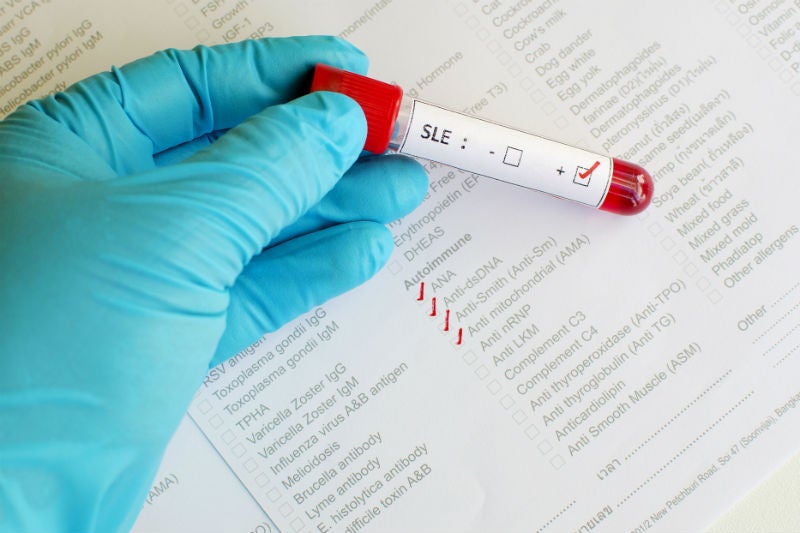On 4 March, UCB announced the initiation of a Phase III clinical trial evaluating the efficacy and safety of dapirolizumab pegol (DZP) as an add-on treatment to standard of care (SoC) medication to achieve clinically relevant, long-term improvement in moderate to severe systemic lupus erythematosus (SLE), despite the fact that DZP failed to meet its primary endpoint in its Phase II trial. The randomised, double-blind, placebo-controlled Phase III study will enroll approximately 450 SLE patients. The estimated primary completion date of the study is October 2022, with overall study completion anticipated in November 2022. Despite DZP’s Phase IIb failures, it will be interesting to evaluate whether the therapy can be a success in the SLE and lupus nephritis (LN) market.
DZP is an anti-human CD-40 ligand (CD-40L) antibody. In SLE, CD-40L is overexpressed when a patient is suffering from active disease. However, in the Phase IIb study evaluating efficacy and safety, DZP did not meet its primary endpoint of demonstrating a dose response on the British Isles Lupus Assessment Group (BILAG)-based Composite Lupus Assessment (BICLA). Despite its flaws, DZP’s BICLA response rates at Week 24 for the 6mg/kg, 24mg/kg, and 45mg/kg doses were 48.8%, 54.5%, and 52.5%, compared to 37.2% with placebo.
Janssen’s Stelara (ustekinumab) also measured BICLA response as a secondary endpoint in its LOTUS Phase II study, and its results versus placebo at Week 24 were 35% versus 33% respectively. From the indirect comparisons with Phase II SLE trials for DZP and Stelara, all doses of DZP seem to induce a higher rate of BICLA response at Week 24. However, it is important to note that Janssen’s trial looked at BICLA response as a secondary endpoint. Furthermore, Stelara also had very high SLE Responder Index, 4-Point Reduction (SRI-4) response rates. Both therapies were in combination with SoC, which could skew the results. It is also important to note that UCB’s DZP was well tolerated and demonstrated an acceptable safety profile. Nevertheless, for UCB’s DZP to become a successful therapy, it must show a higher response rate in its Phase III trial. Key opinion leaders interviewed by GlobalData noted that although DZP was not entirely successful in its Phase II trial, it is still possible to attain success, as evidenced by the fact that GlaxoSmithKline’s (GSK’s) Benlysta (belimumab) also did not do well in its Phase II trial.
GlobalData forecasts that DZP will enter the market in 2024 and will be the third subcutaneous (SC) biologic launched in moderate to severe SLE, after GSK’s Benlysta and Janssen’s Stelara. This will hamper DZP’s uptake, especially if Janssen’s Stelara shows better efficacy than DZP. It is essential that UCB prices DZP effectively, as the drug will have the potential to overtake both Stelara and Benlysta in sales if it can be priced at a discount, especially compared to Stelara’s annual price of over $100,000 per patient.

US Tariffs are shifting - will you react or anticipate?
Don’t let policy changes catch you off guard. Stay proactive with real-time data and expert analysis.
By GlobalData





